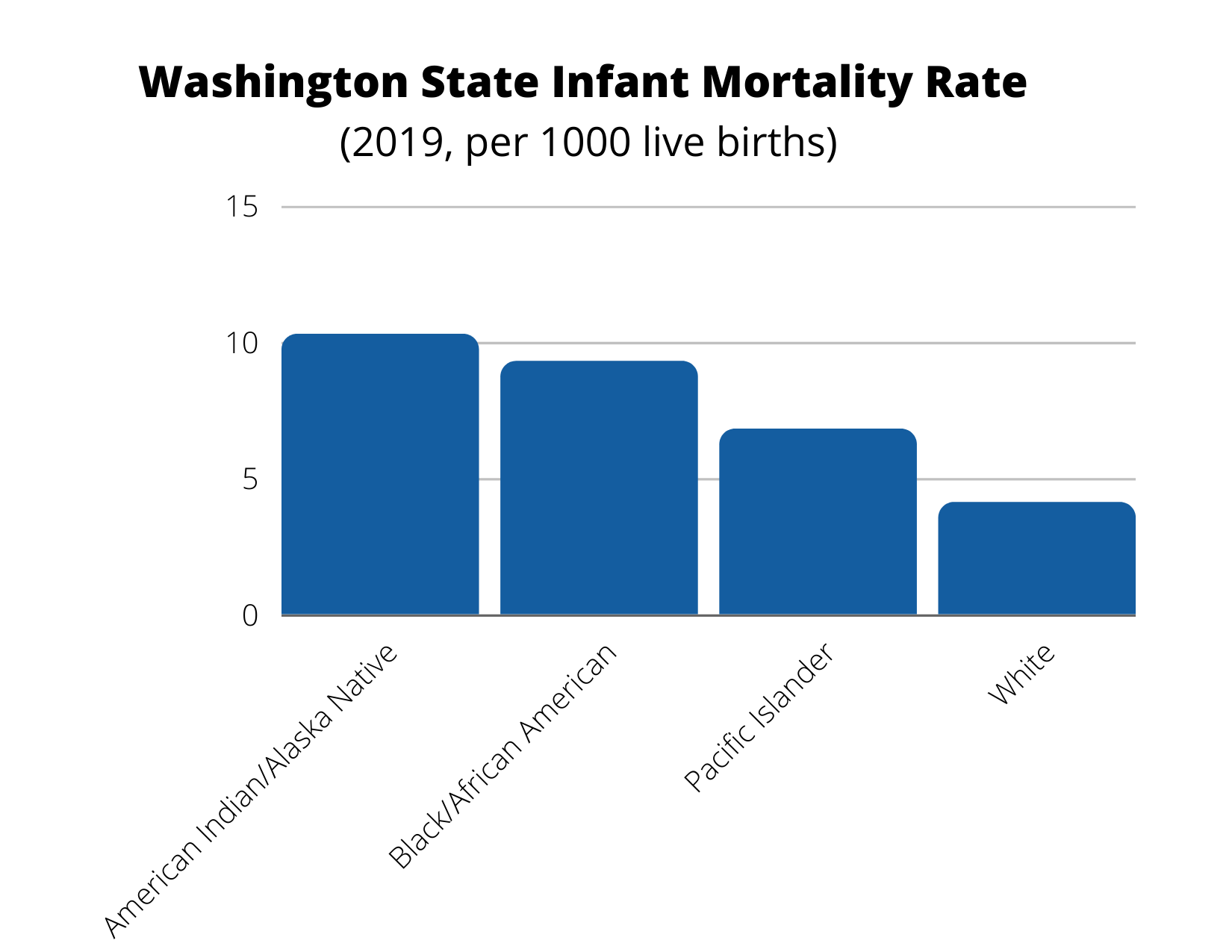Birth Equity Project
The Washington State Department of Health Birth Equity Project seeks to address and reduce the racism faced by birth workers and families of Black/African American, African immigrant, and American Indian/Alaska Native communities in our state. DOH makes strategic investments in community-based birth worker organizations working to improve birth outcomes.
The vision for the Birth Equity Project is:
- Birthing people are healthy and can have a birth the way they want it.
- Birthing people are treated as experts in their own care, and their concerns are taken seriously.
- Birthing people have access to resources without fear of discrimination, violence, or deportation.
- Birthing people have access to care that incorporates both Western medicine and traditional practices.
- Birthing people have access to doulas and midwives.
The Birth Equity Project is led by a community advisory board. They define our vision for birth equity, makes funding decisions, and guides the program. This committee is made up of doulas, midwives, childbirth educators, parents, caretakers, and other community birth workers from the priority communities of this project.
Program highlights
Since 2019, the Birth Equity Project has worked with community-based organizations on projects that improve the lives of families in Washington. Some program successes include:
- 8 new programs serving birthing people were implemented
- 376 parents, caregivers, and children were served by BEP funded programs
- 20 new doulas trained
- 80 birth workers received training in culturally competent birth education
- 319 families received baby formula during the 2022 formula shortage
- 20 Black birth workers received colostrum kits
From our grantees:
“So far there have been two major benefits: The first is that the relationship between the Forks Community Hospital system and Makah Tribe has strengthened… The second is watching women teach each other about pregnancy. Even when there are only 1-2 pregnant women attending, grandmothers and partners have contributed significantly to the conversation.”
“This program is very available and important because it allows people to share coping mechanisms and remind each other that they have value and there is hope.”
Why birth equity?
It is well established that poor health outcomes during pregnancy, at birth, postpartum, and in infants are largely preventable through public health measures. It is also well established that racism, and the experience of racism, create barriers to care and negatively affect the physical, emotional, and spiritual health of families.
While Washington has relatively low infant and maternal mortality, on a national level, Black/African American, African Immigrant, and American Indian/Alaska Native are disproportionally impacted. These disparities have been relatively constant over the past two decades in Washington and are linked to a long history of racism and inequitable institutional and systemic practices in health systems.

